fruit fly infestations may seem like a minor annoyance, but their presence can pose unseen dangers that go beyond their pesky behavior. These tiny insects have the ability to contaminate your food, spread bacteria and disease, and even multiply at an alarming rate if not dealt with promptly. In this article, you will explore the hidden risks associated with fruit fly infestations, understand the importance of proper pest control measures, and discover effective products to eliminate these bothersome pests from your home.
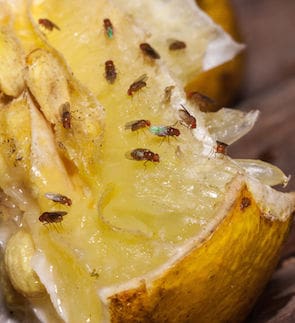
How Fruit Fly Infestations Occur
Causes of fruit fly infestations
Fruit fly infestations can occur due to a variety of factors. One of the primary causes is the presence of ripe or rotting fruits and vegetables. Fruit flies are attracted to the sweet aroma emitted by overripe produce, and once they find a suitable food source, they reproduce rapidly, leading to an infestation. Additionally, poor sanitation practices, such as leaving food scraps uncovered or unwashed dishes in the sink, can also contribute to the presence of fruit flies in your home.
Common sources of fruit fly infestations
Fruit flies can enter your home through various sources, some of which you may not even be aware of. Grocery stores and farmer’s markets are common sources of infestation, as fruit flies can hitch a ride on fresh produce purchased from these establishments. Other potential sources include compost piles, garbage cans, drains, and even the outdoors. It is crucial to be vigilant and inspect any fruits or vegetables brought into your home to prevent an infestation from occurring.
Lifecycle of fruit flies
Understanding the lifecycle of fruit flies is essential in effectively combating infestations. Fruit flies undergo a four-stage lifecycle: egg, larvae, pupae, and adult. Female fruit flies lay their eggs on the surface of decaying fruit or other organic matter. The eggs hatch into larvae, commonly known as maggots, which feed on the fermenting material. After going through the pupal stage, adult fruit flies emerge and are ready to reproduce. This entire lifecycle can take as little as seven to ten days, allowing for rapid population growth in infested areas.
Health Risks Associated with Fruit Fly Infestations
Fruit flies as disease carriers
While fruit flies may seem harmless, they can pose significant health risks. Fruit flies are known carriers of bacteria, including pathogens such as Salmonella, E. coli, and Listeria. These bacteria can contaminate the surfaces of fruits and vegetables, putting individuals at risk of foodborne illnesses. Consuming contaminated produce can lead to symptoms such as nausea, vomiting, diarrhea, and in severe cases, even hospitalization. It is crucial to ensure that any fruits or vegetables consumed are free from fruit fly contamination.
Potential food contamination
Apart from being carriers of disease-causing bacteria, fruit flies can contaminate food through physical contact or by laying their eggs on the surface. This can lead to the presence of maggots in the food, rendering it unsafe and unpalatable. Consuming contaminated food not only poses the risk of ingesting harmful bacteria but can also cause gastrointestinal discomfort and distress. It is essential to maintain hygienic conditions in your kitchen and dispose of any infested produce promptly.
Allergic reactions
Some individuals may have allergies or sensitivities to fruit fly secretions or their fecal matter. Exposure to these allergens can trigger allergic reactions, ranging from mild symptoms such as itchiness and skin rashes to more severe manifestations like difficulty breathing and anaphylaxis. People with pre-existing allergies or asthma may be particularly susceptible to these reactions. It is crucial to seek medical attention if you suspect an allergic reaction caused by fruit fly infestation.
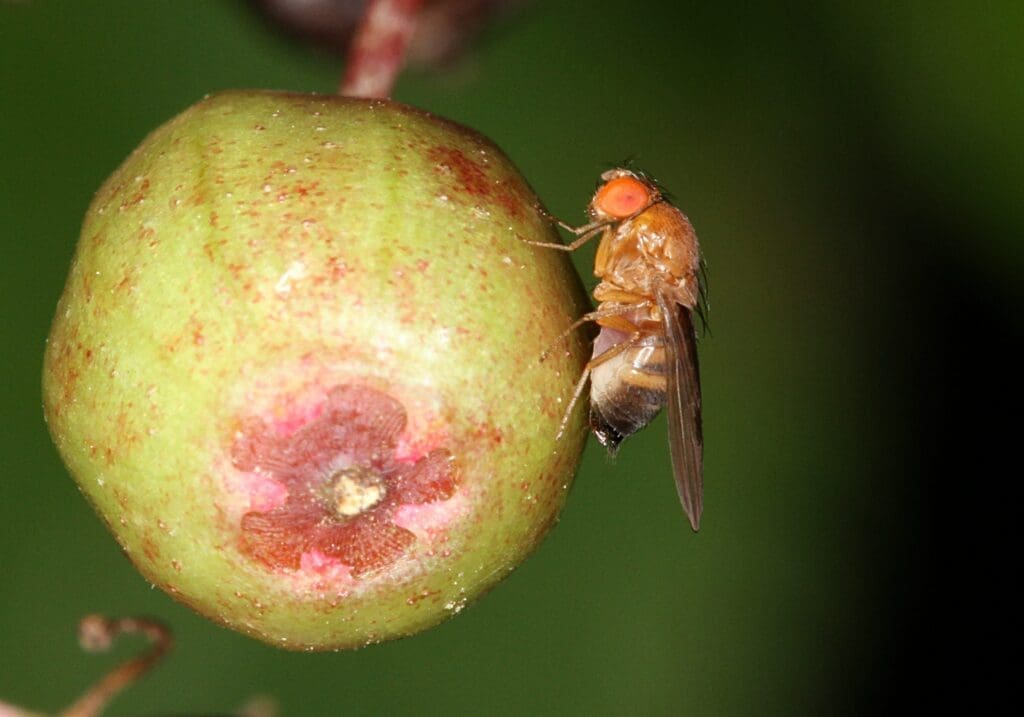
Effects on Food Safety
Contamination of fruits and vegetables
Fruit fly infestations can pose a significant threat to the safety of fruits and vegetables. As fruit flies land on produce, they transfer bacteria onto the surfaces, increasing the risk of foodborne illnesses. This contamination can occur even before the produce reaches your home, as fruit flies can infest and lay their eggs on fruits and vegetables at grocery stores or farmer’s markets. To ensure food safety, it is essential to thoroughly wash and inspect all produce, even if it appears to be unaffected by fruit flies.
Food spoilage and economic losses
Aside from the health risks, fruit fly infestations can result in substantial economic losses. When fruit flies contaminate fruits and vegetables, they accelerate the spoilage process. The presence of maggots and the foul odor associated with infested produce make it unsuitable for consumption, leading to significant food wastage. For businesses such as grocery stores or restaurants, these losses can be particularly detrimental to their bottom line. Preventing and controlling fruit fly infestations is crucial to minimize economic losses and maintain food quality.
Impact on food establishments and businesses
Fruit fly infestations can have a severe impact on food establishments and businesses. The presence of these pests can tarnish the reputation of restaurants and grocery stores, leading to a loss of customer trust. Negative reviews and word-of-mouth can spread quickly, causing a decline in sales and potential financial hardships. Additionally, health inspections may result in penalties or closure if infestations are not effectively addressed. It is vital for food establishments to implement rigorous pest control measures to maintain a clean and safe environment for their customers.
Structural Damage and Infestation Spread
Structural damage caused by fruit flies
Fruit flies can cause more than just nuisances in your kitchen. They can also cause structural damage to your home. Fruit flies are attracted to moist, decaying organic matter, leading them to seek out drains, garbage disposals, and leaky pipes. Over time, their presence and activity can contribute to the deterioration of these areas, potentially resulting in water damage and costly repairs. Regular maintenance and proper cleaning practices can help prevent fruit flies from causing structural damage to your home.
Spreading of infestations to neighboring areas
Fruit fly infestations have a remarkable ability to spread rapidly from one area to another. Fruit flies can easily move from room to room, hitching a ride on clothing, bags, or even pets. If left unaddressed, infestations can quickly migrate to neighboring homes or apartments within a building. This makes it crucial for prompt action when dealing with fruit fly infestations to prevent them from becoming a widespread problem.
Damage to furniture and household items
In addition to structural damage, fruit flies can also cause damage to furniture and household items. Fruit flies are attracted to scents and odors, including those emanating from various materials. They may lay their eggs or deposit their waste on surfaces such as wooden furniture, rugs, or upholstery. This can result in stains, discoloration, or unpleasant odors. Regular cleaning and inspection of furniture and household items can help prevent such damage and maintain the longevity of your belongings.
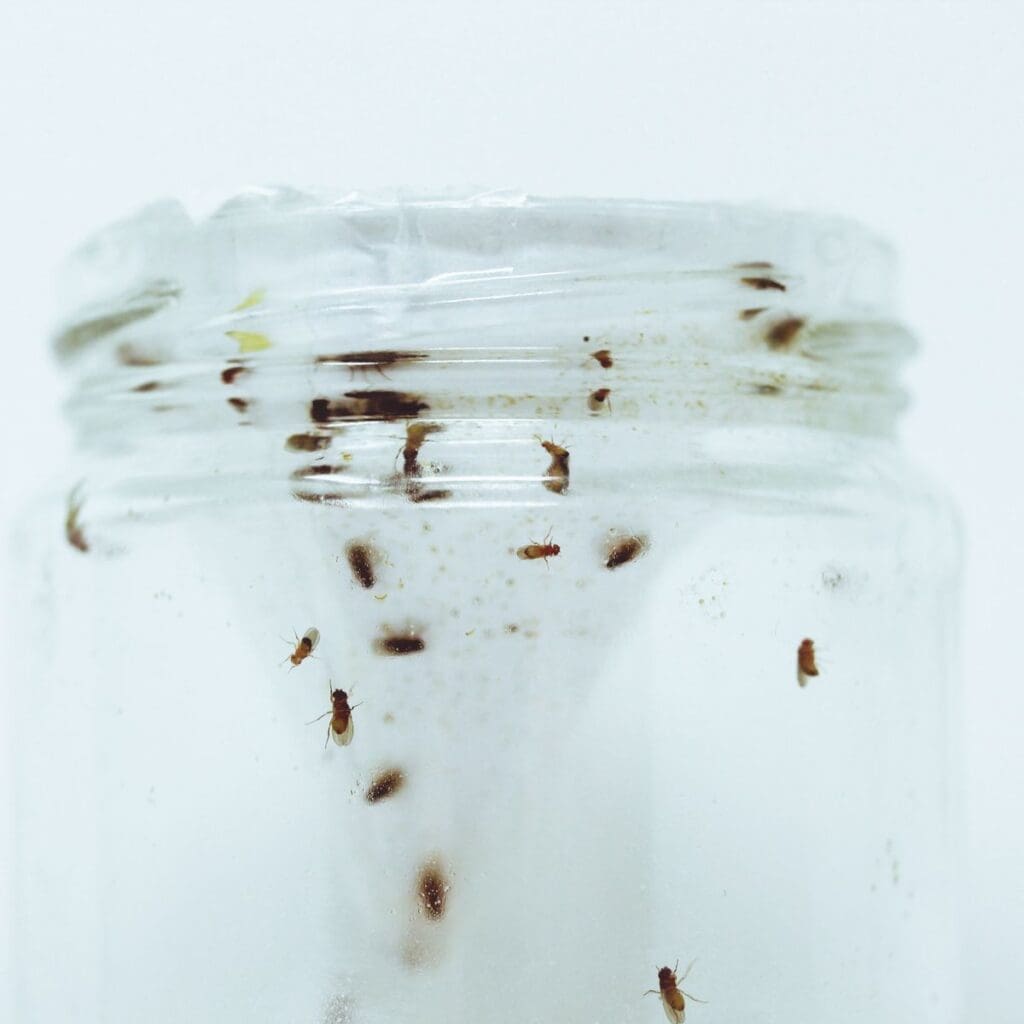
Negative Impact on Agricultural Practices
Crop damage and reduced yields
Fruit fly infestations can have a detrimental impact on agricultural practices. These pests are known to attack a wide range of fruit and vegetable crops, causing significant damage. Fruit flies lay their eggs inside the fruit, leading to infested produce that is unfit for sale or consumption. This not only results in direct crop losses but can also reduce overall yields and negatively impact farmers’ livelihoods. Implementing effective pest management strategies is crucial in minimizing the damage caused by fruit flies in agricultural settings.
Effects on organic farming
Organic farming practices aim to minimize the use of pesticides and prioritize natural solutions. However, fruit fly infestations pose a unique challenge for organic farmers. Since chemical pesticides are not an option, organic farmers must rely on alternative methods, such as biological controls or cultural practices, to manage infestations. This requires careful monitoring, timely intervention, and the implementation of preventive measures. Fruit fly control in organic farming requires a comprehensive approach tailored to the specific needs and challenges of organic agriculture.
Increased pesticide usage
While organic farming focuses on reducing pesticide usage, conventional farming practices often rely on chemical pesticides to combat fruit fly infestations. Pesticides can be effective in controlling fruit flies when used correctly. However, their frequent and indiscriminate use can have unintended consequences on the environment and non-target organisms. Excessive pesticide usage can lead to the development of pesticide resistance, harm beneficial insects and pollinators, and contribute to environmental pollution. It is essential to explore sustainable and integrated pest management strategies to minimize reliance on chemical pesticides.
Psychological Impact on Individuals
Emotional distress caused by fruit fly infestations
Dealing with a fruit fly infestation can be emotionally distressing. The constant presence of these tiny pests can create feelings of frustration, annoyance, and disgust. The feeling of being invaded in your own living space can cause stress and a general sense of unease. It is important to recognize and address the emotional impact of fruit fly infestations, seeking support from loved ones or professionals if needed.
Negative impact on mental health
Fruit fly infestations can have a negative impact on mental health, particularly for individuals already dealing with anxiety or obsessive-compulsive disorders. The need to maintain cleanliness and control the infestation can lead to heightened anxiety levels. The constant worry about potential food contamination or the fear of fruit flies spreading to other areas can exacerbate existing mental health conditions. It is crucial for individuals to prioritize self-care and seek professional help if fruit fly infestations significantly affect their well-being.
Sleep disturbances and stress
The presence of fruit flies can disrupt sleep patterns and contribute to stress. Fruit flies are most active during the day, making it difficult to relax and unwind in your own home. The buzzing sound of their wings and their persistent presence can make it challenging to sleep peacefully, leading to sleep disturbances and fatigue. The resulting lack of quality sleep can further contribute to increased stress levels and overall feelings of irritability and exhaustion. Taking measures to eliminate fruit fly infestations can help restore a sense of calm and improve sleep quality.
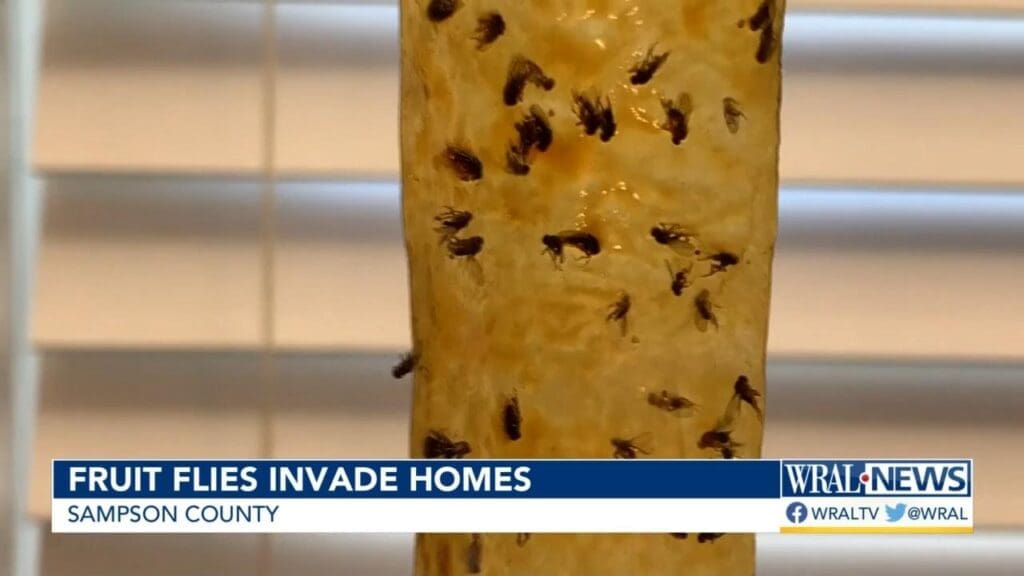
Fruit Fly Infestations and Asthma
Potential triggers for asthma attacks
For individuals with asthma, fruit fly infestations can pose specific risks. Fruit flies produce airborne particles, including allergens, that may act as triggers for asthma attacks. These particles can cause irritation and inflammation in the airways, leading to symptoms such as coughing, wheezing, and difficulty breathing. It is crucial for asthmatic individuals to take preventive measures to minimize their exposure to fruit fly allergens and maintain good indoor air quality.
Harmful effects on respiratory health
Fruit flies not only pose a threat to individuals with asthma but can also have harmful effects on overall respiratory health. The presence of fruit flies can contribute to poor indoor air quality, as their secretions and waste can become airborne. Breathing in these particles can irritate the respiratory system, leading to coughing, sneezing, and throat irritation. It is essential to address fruit fly infestations promptly to safeguard respiratory health, particularly for individuals with pre-existing respiratory conditions.
Preventive measures for asthmatic individuals
Asthmatic individuals can take specific preventive measures to minimize the risks associated with fruit fly infestations. Keeping windows and doors closed, using air purifiers with HEPA filters, and regularly cleaning and vacuuming indoor spaces can help reduce the presence of fruit fly allergens. Additionally, practicing good asthma management, such as taking prescribed medications and avoiding known triggers, is essential for maintaining respiratory health. Consulting with a healthcare provider can provide personalized guidance on managing asthma in the presence of fruit fly infestations.
Fruit Flies and Pet Health
Health risks for pets
Fruit fly infestations can pose health risks to pets, particularly small animals such as dogs, cats, and birds. Fruit flies can carry and transmit certain bacteria and parasites that can cause gastrointestinal infections in pets. If ingested, contaminated food or water can lead to symptoms such as vomiting, diarrhea, and loss of appetite. It is important to monitor your pets for any signs of illness and seek veterinary care if they show any concerning symptoms.
Contamination of pet food and water
Fruit flies can contaminate pet food and water, rendering them unsafe for consumption. These pests are attracted to the aroma of pet food and may lay their eggs on the surface or directly inside food containers. Consuming infested food can expose pets to harmful bacteria and parasites, potentially leading to digestive issues and other health problems. Regularly inspecting and storing pet food properly, away from potential fruit fly infestations, is crucial in maintaining pet health.
Precautions for pet owners
As a responsible pet owner, it is important to take precautions to protect your pets from fruit fly infestations. Store pet food in airtight containers to prevent fruit flies from accessing it. Clean and disinfect food bowls regularly, ensuring they are free from any fruit fly contamination. Additionally, promptly dispose of any spoiled or infested pet food to prevent further infestations. Providing a clean and hygienic environment for your pets will help minimize the risks associated with fruit fly infestations.
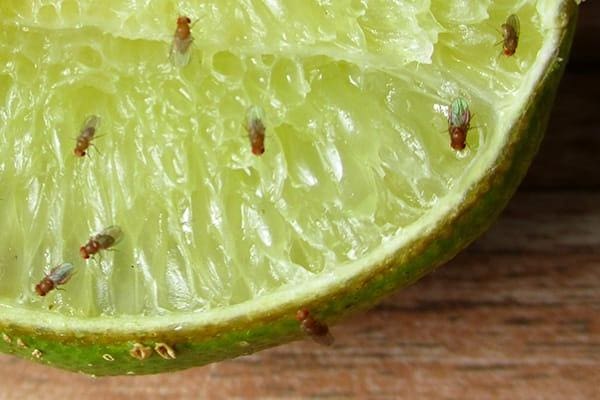
Prevention and Control Strategies
Identifying and eliminating breeding sites
The first step in preventing and controlling fruit fly infestations is identifying and eliminating potential breeding sites. Regularly inspect your kitchen, pantry, and garbage areas for any decaying or overripe fruits and vegetables. Dispose of such items in sealed bags or covered trash bins. Additionally, pay attention to drains, sinks, and garbage disposals, as fruit flies are attracted to moist environments. Regularly clean and disinfect these areas to remove any organic matter that may attract fruit flies.
Proper storage and sanitization practices
Proper storage and sanitization practices are essential in preventing fruit fly infestations. Store fruits and vegetables in the refrigerator or in sealed containers to minimize their exposure to fruit flies. Thoroughly wash all produce before consumption, even if it appears to be free from fruit flies. Maintain cleanliness in your kitchen by promptly cleaning up spills, washing dishes, and removing food waste from countertops and sink drains. Regularly empty and clean trash cans, ensuring they have tightly sealed lids.
Natural and chemical control methods
When it comes to controlling fruit fly infestations, there are both natural and chemical control methods available. For natural control, you can create homemade fruit fly traps using common household items such as apple cider vinegar or banana peels. These traps lure fruit flies with their attractive fragrance and capture them, helping to reduce their population. Alternatively, chemical control methods include insecticides specifically designed for fruit flies. When using chemical pesticides, it is important to follow the instructions carefully and consider less toxic alternatives whenever possible.
Conclusion
Fruit fly infestations may seem like a minor nuisance, but they can have far-reaching consequences and pose significant health risks. From the contamination of food to structural damage, fruit flies can wreak havoc in both residential and agricultural settings. Understanding the causes, health risks, and prevention strategies associated with fruit fly infestations is crucial in effectively combating these pests. By implementing proper sanitation practices, eliminating breeding sites, and taking proactive measures, you can protect your health, food safety, and overall well-being from the unseen dangers of fruit fly infestations.

I am Randy, the author behind PestControld.com. Drawing from decades of experience, I aim to provide valuable insights, expert advice, and practical recommendations to help you make informed decisions when assessing viable pest control solutions.